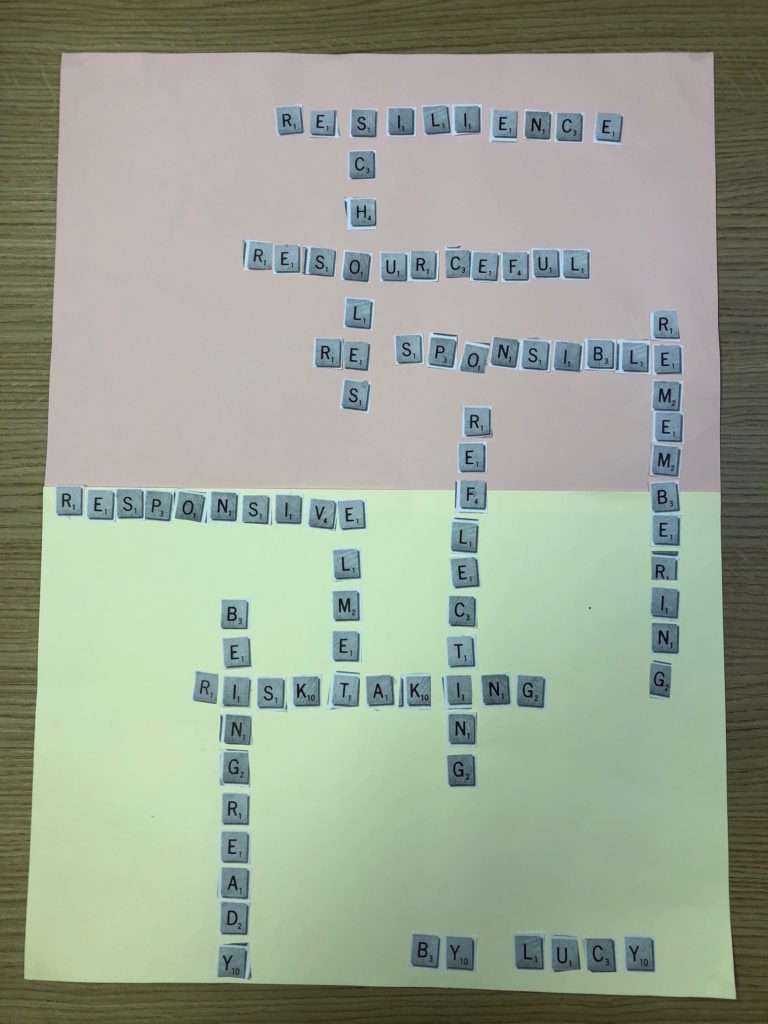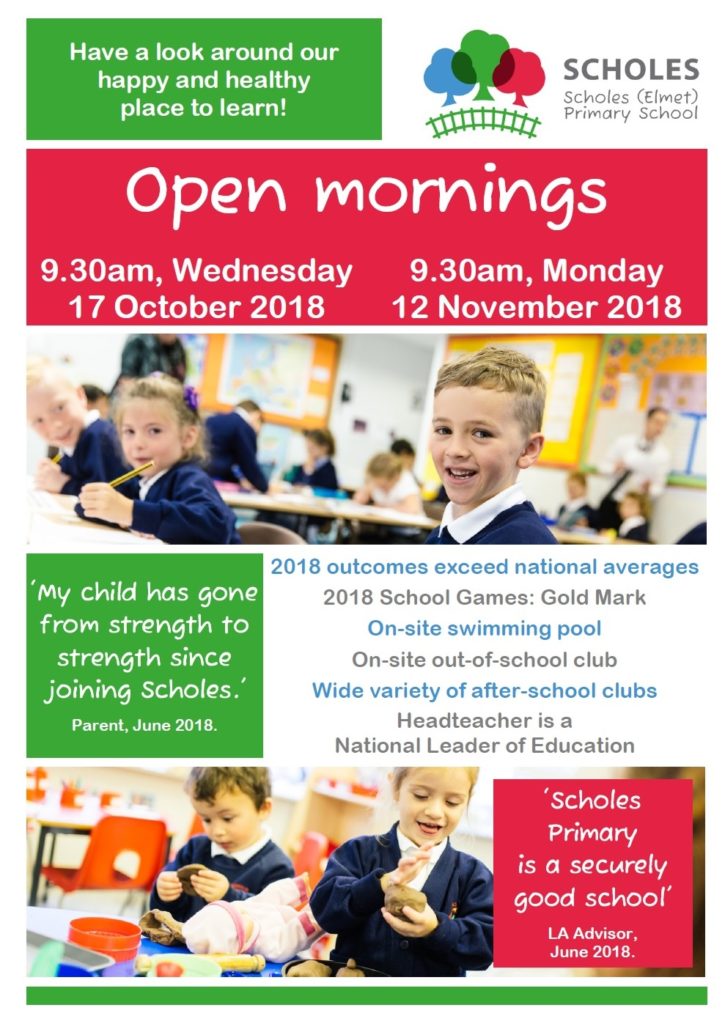Homework matters
Posted on 21 October 2018 by Mr Roundtree
Some of you might have spotted an article in the Sunday Times today about a group of parents who have concerns about homework. As part of the article, the newspaper has carried out research on a sample of 80 schools and their homework policies, including Scholes (Elmet) Primary.
Articles like this are not especially helpful, especially when they take only a very short extract from our policy: ‘At Scholes (Elmet) Primary School in Leeds parents are contacted “if homework is of a regular poor standard, or . . . regularly not handed in”, according to the website.’
First, it’s not quite accurate. Our policy says: ‘We will communicate to parents/carers if homework is of a regular poor standard, or which is regularly not handed in.’ It would be extremely rare for us to contact parents/carers specifically about homework. Typically, we would wait until parent-teacher consultations or the annual report and make a comment at that point.
Second, the article doesn’t really present the big picture. Our Homework Policy presents a clear rationale for homework, backed up by research evidence. A review of the research around homework indicates that ‘Effective homework is associated with greater parental involvement and support…The broader evidence base suggests that short focused tasks or activities which relate directly to what is being taught, and which are built upon in school.’ We believe our homework tasks achieve this: Talk Time is almost entirely about developing parental involvement and support in a way that is easy to achieve – ideally sitting together over a meal, but possible even in the car or walking to school; Creative homework is designed to let children demonstrate their learning in a way that suits their own ideas and preferences, and one where families can talk about and be involved in to whatever extent they choose. These two, plus the more traditional Practice Makes Perfect homework, are always based on learning that relates directly to what is being taught in school.
The policy also promotes other activities that will enrich children’s childhood: ‘Whilst homework develops children’s learning and independence, quality family time, play and free time are also important. Homework should not prevent children from taking part in wider activities such as those offered by out-of-school clubs and other organisations. Children develop their interests and skills to the full only when parents/carers encourage them to make maximum use of the opportunities available outside school.’
Third, this article was in today’s Sunday Times. Less than four years ago, the same newspaper published a very different article:
‘ONE of the biggest studies of homework ever carried out proves what every parent has always told their child — knuckling down after school pays dividends. An international study of the homework patterns of 15-year-olds in 65 countries has revealed a clear link between longer homework hours and higher academic performance. “These findings should finally silence sceptics who have argued that homework is bad for youngsters, causing stress and division in families,” said Alan Smithers, professor of education at the University of Buckingham. He called on more schools to take homework seriously by enforcing sanctions when pupils fail to do it.’
It’s a pity that today’s article misses an opportunity to present a more balanced report, even at the expense of referring to its own previous journalism.
Our Homework Policy was developed in consultation with parents/carers. Each year, we consider carefully views expressed in our annual survey – inevitably, some parents/carers feel there is too much but the majority support the current policy.
Impressive homework: our 8Rs re-interpreted
Posted on 19 October 2018 by Mr Roundtree
We love this great homework in 3,4EK.
Here’s a poem which is great to read – especially the part highlighted in purple!

This Scrabble game is a great challenge. (It’s a good way to learn spellings, too – whether you have real Scrabble pieces or not, can your child arrange this week’s spelling words in a grid?)

Kick-off!
Posted on 17 October 2018 by Mrs Latham
Our football season kicked off tonight with a selection of year 5 and 6 children playing matches at Shadwell and Roundhay. Unfortunately, we didn’t win but both teams showed great team spirit, resilience and determination. We are looking forward to more competitive matches after half term.
Harvest Festival - a big thank you!
Posted on 16 October 2018 by Mrs Latham
Thank you for all the kind donations to our Harvest Festival today. Henry, from the Salvation Army, was overwhelmed by the generosity of the families at Scholes. Thank you for each and every donation.
Harvest Celebration
Posted on 14 October 2018 by Miss Hague
On Tuesday 16 October, we are having a harvest celebration in school. As we have done in previous years, we are supporting the Salvation Army by collecting tinned produce. Any items we collect will be used to make up food parcels which will be distributed to some of our most vulnerable families in the Leeds area. If you would like to support this very worthy cause, please send in tinned produce on Tuesday.
Thank you.
Triathlon - interested in more?
Posted on 11 October 2018 by Mrs Latham

Staying safe at Scholes
Posted on 09 October 2018 by Mr Roundtree
At Scholes (Elmet) Primary, we place keeping our children safe – both physically and emotionally – as our top priority. We recently invited someone from Leeds LA to come in to school to audit all our safeguarding procedures. The purpose of the audit was to ‘assist schools in evaluating their procedures for Safeguarding and Child Protection’ – it’s something that many schools request in order to make sure their procedures are as robust as they can be.
We’re happy to tell you the audit went really well – some aspects of our procedures were even identified as exemplary!
Final comments in the report are:
I was shown around the school where I observed that the Living and Learning theme is embedded and visible to all pupils and staff and that notice boards and displays were of a high standard.
I spoke to 3 pupils who were confident in telling me about who they could go to in school for support and how they are taught to keep themselves safe on line. They all stated clearly that they felt safe in school because of the teachers they have around them, their friends and the fences around the school grounds. They could also tell me about the different coloured lanyards issued to visitors and staff in school and why they are different colours.
It is clear to see that the safety and welfare of the children at Scholes (Elmet) Primary School is of high importance and the staff and SLT [Senior Leadership Team] have worked hard to meet the needs of its children and families.
The evidence presented for the audit was good and very thorough and the preventative approach through the curriculum was shown to be excellent.
Scholes (Elmet) Primary is a happy and healthy and safe place to learn.
Open morning for prospective 2019 parents / carers
Posted on 08 October 2018 by Mrs Quirk
If you’re looking for a Reception place for your child, we’re holding two open mornings over the next few weeks. These will take place on Wednesday 17 October and Monday 12 November, at 9.30am on both days. This is an opportunity for you to come and visit the school, ask any questions you may have, and be shown around by some of our Year 6 children. No appointment needed – just turn up.

Cross Country competition - resilience, determination and grit!
Posted on 08 October 2018 by Mrs Latham
Some year 6 children took part in the area heat of the Leeds Cross Country competition today. They ran 1,800m and had to draw on their Living and Learning skills; being ready, determination and resilience. They all enjoyed the experience and finished the race. Well done!

Parents' evening coming up
Posted on 08 October 2018 by Mr Roundtree
The first of two parent-teacher meetings are coming up soon: 22 October and 24 October. At these meetings, you’ll notice a small change.
In the annual survey of parents and carers, a small number mentioned that they would prefer more frequent updates about their child’s progress. We’ve acted on this by changing when we provide you with the Learning Updates. These were previously given to you at parents’ evening. However, this year, we’ll send these home at the end of the Autumn and Spring terms. This means you’ll have an update at the end of Autumn 1 (the parents’ evening), Autumn 2 (the Learning Update), Spring 1 (the second parents’ evening), Spring 2 (the second Learning Update), and then the end of year report in the Summer.
As always, Miss Hague will be around to hear your questions, compliments and concerns with these arrangements.



